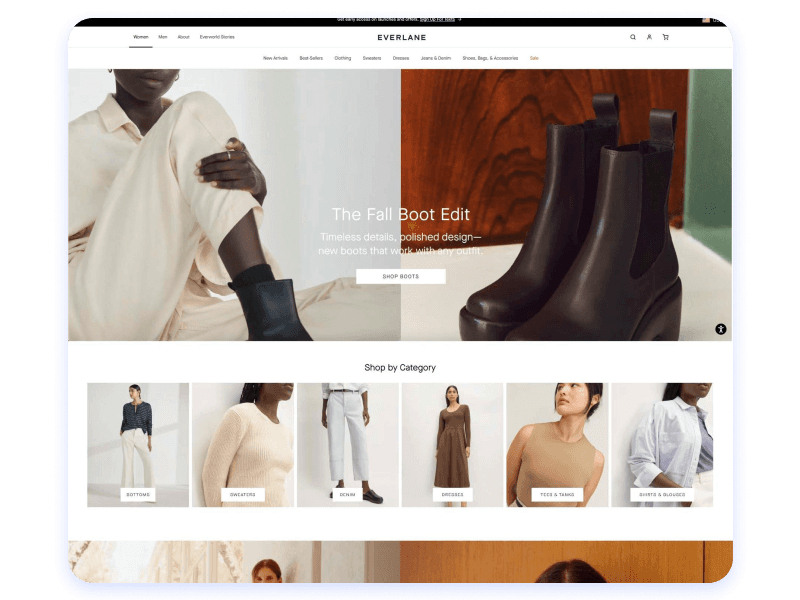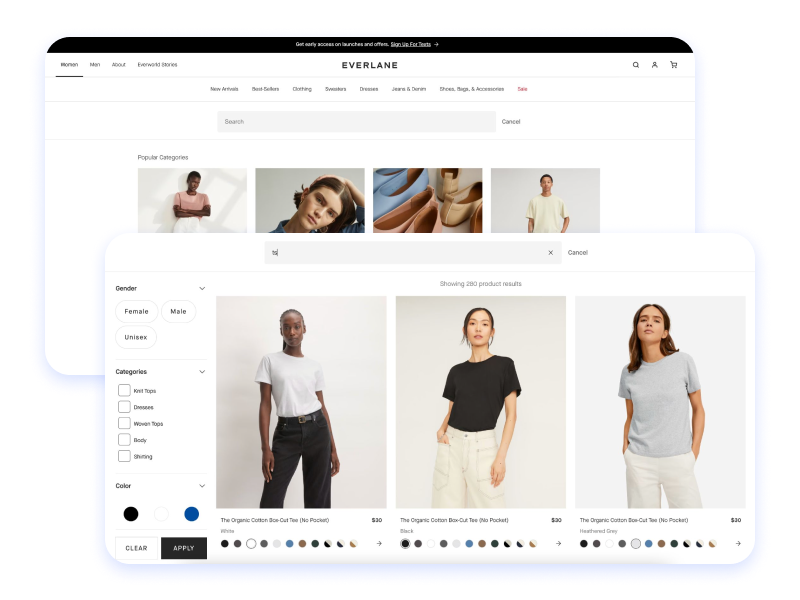In 2011, Michael Preysman had an idea for a very different kind of fashion company, one which would provide customers a window into every aspect of operations. The result is Everlane, a retail clothing company built on the foundation of “radical transparency.” Offering classic, minimalist pieces for all genders, Everlane gives consumers an open view of everything from the environmental sustainability of their materials through the ethical labor practices of their partner factories to the size of their profit markups.
In addition to transparency, sustainability is another of Everlane’s core drivers. The fashion industry has much ground to regain when it comes to environmental and social sustainability, and Everlane is dedicated to reducing the chemicals, plastics, and waste so prevalent in much of the sector. They are also committed to an ethical supply chain, working with independent auditors to ensure fair wages, proper labor conditions and working hours, and safe working environments.
Producing quality pieces meant to last, Everlane has always primarily been an online business, though they now also have a brick-and-mortar presence. Although their headquarters are in San Francisco, nearly 50% of their 360 employees work remotely. Innovative and mission-driven in outlook, Everlane’s site provides customers with deep insight into the environmental and social impact of their factories as well as a premium platform for B2C purchases.
Rachel Maxwell is the Senior Manager of Digital Merchandising at Everlane. Located in Philadelphia, she oversees three different but complementary streams: creative strategy planning and execution, site merchandising, and digital operations. With so much ground to cover, her team wears many hats and fills several roles. “We’re a lean team, a small team, but we’re responsible for a lot. Efficiency is top priority for us.”
Efficiency is what first brought Everlane to Algolia. A company that builds clothing meant to last, Everlane applies their top-tier resources approach to internal workings as well. “A lot of our tech stack is homegrown. As we grow, we’ve had to outsource specific aspects and functions of the site. We look for industry leaders to help us maximize results. Obviously maximizing search and discoverability was very important to us. That’s what led us to Algolia.”







